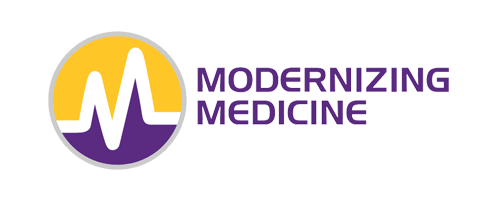In the reign of healthcare, denials are a huge burden for organizations both financially and mentally. Simplifying denials is a hectic and strategic process aimed at resolving problems related to calm rejections and inconsistent reimbursements.
Overcoming RCM claim denials is one of the best ways to ensure minimum claim resubmittals. However, that is not all!
The strategies you devise for denial management should mitigate the risks of future denials. Outsourcing your medical billing to a revenue cycle management company is a great practice to keep your billing error-free. You can be assured that your claims will be reimbursed as soon as possible.
Overcoming Billing Challenges & Denials
If you want to overcome the billing challenges in healthcare, you can tell your denial management team to determine repeated denial reasons. The goal here must be to pinpoint the coding and billing errors which are affecting the revenue cycle negatively and work towards making them right. This is very helpful in avoiding future denials.
Tracking the payment patterns for individual payers also becomes the responsibility of the billing team, which makes it easier to detect any deviation from the normal trends leading to denials.
The Types of Insurance Payers
Insurance payers cover some portion of patient medical expenses which falls under their responsibility. It also depends on the type of insurance payer which include
- Private Health Insurance: Enrollees pay predetermined premiums to insurance companies and receive reimbursement in case of any medical issue.
- Government Payers/ Medicare: It covers the elderly and disabled patients or individuals who cannot afford to get insurance.
- Workers Compensation Insurance: This covers injuries and illness due to the work environment and is funded by the employer.
Every insurance payer has a unique set of guidelines and contracts which determines if they should be held responsible for the payment or not. To claim reimbursement from these payers, a lot of documentation and paperwork needs to be done. This is where a revenue cycle management company can help you.
Basics of Billing & Coding
Medical billers and coders translate the services and treatments provided to any patient into codes. These codes are used by the payers to understand their payment responsibility towards the patient. There are a variety of codes like
- CPT Codes: Defines the services, procedures and treatments provided
- ICD Codes: Records the diagnosed medical conditions and symptoms
- HCPCS Codes: Identifying the healthcare products and equipment used
For any additional information other than these codes, Modifiers are used. It is used to specify any certain part of the body or any certain symptom or illness. Accurate coding is required for proper reimbursement.
Different Stages of Billing
Patient Service Delivery
The medical team addresses the patient's concern and provides them with the services and treatments needed. All these services are documented in an electronic medical record to support appropriate coding and claims.
Charge Capture
The required data of charged services are extracted from the electronic medical record and ingested into the billing system. A professional coder revies the code for any inaccuracy before filing it for claim.
Claim Creation
The billing system compiles all the treatments, codes and fees and creates a final document for submission.
Claim Transmission
Once a claim is completed it is sent electronically to the insurance payers for processing. Sometimes it is also done manually.
Claims Lifecycle Management
Insurance companies check the validity, medical necessity, and errors and then decide if the claim is going to be approved or denied. Tracking the status of the claim is a key practice to decrease RCM claim denials and get reimbursed.
Patient Billing
Once the claims are processed by the insurers any outstanding payments not covered by the insurance are then compiled and the invoice is then sent to the patient. It is often automated into medical billing systems for sending payment notifications to patients.
Payment Posting
As the claims are reimbursed, the payments are then matched to the corresponding patient account. This completes the medical revenue cycle.
Reasons for Claim Denials
Denials are very common in medical billing scenarios, but it is the main cause of inconsistent or uncertain revenue leading to financial losses. Denials can happen due to various reasons such as discrepancies and errors in coding and billing.
Inaccurate patient information, incorrect coding modifiers and incomplete documentation are some other common reasons for denials.
Effect of Denials on Practice
The effect of denials can impact a healthcare organization's revenue drastically. It causes not only financial load but also affects customer relations, loyalty and trust. It affects the morale of your staff and disturbs your entire process. That is why handing over your revenue cycle management to professionals like Unify Healthcare Services is essential.
Adding to your workload are the overhead administrative costs required to rectify the errors and resubmit the claims. All this time and effort can be utilized to provide better patient care.
Repeating denials may also affect the reputation of your practice. That is why it is essential to create strategies for preventing denials, resolving the errors and overcoming billing challenges.
Insights of Claim Denials
In the complex scenario of medical billing, there are two best practices used by medical billing experts to ensure accuracy and precision in their claims.
Explore Denial Trends
Identifying general patterns from the denial data is essential for determining obvious trends. By analyzing the historic denial data, healthcare providers can identify repeating issues which cause denials.
Once you are notified, you can address these concerns before submitting the claim for reimbursement. It will decrease the chances of denial leading to a better revenue cycle for your healthcare organization.
However, this process needs powerful analytical tools which can offer valuable insights into your denial patterns, payer behavior and accuracy.
Keeping up with all these tools is a bit difficult for healthcare providers, that is why it is often advised to outsource your billing to medical billing companies like Unify Healthcare Services.
Use Analytics
Analytics is a powerful tool which can be used to revolutionize your denial management process. By using advanced data analysis techniques, healthcare providers can understand the root cause of your claim denial.
These insights can help a healthcare provider to implement tailored strategies to overcome billing challenges by streamlining your process, simplifying documentation and reducing claim rejections.
Final Word
Medical billing is a complex and hectic process without a doubt. Healthcare providers invest a lot of time and effort into creating error-free claims for accurate reimbursements.
It is also a significant part of any medical billing organization because it is directly associated with the revenue of healthcare organizations as well as private practitioners.
Even after taking care of billing with scrutiny a lot of claims are denied because the billers often miss some information or put inaccurate information in the documentation process. This is where medical billing companies like Unify Healthcare Services come in to help you.
Unify healthcare services is a medical billing company that takes care of all the billing related requirements for various healthcare organizations as well as individual practitioners. With a team of trained professionals, we ensure that all the claims we submit are error free and precise so that practices can have maximum reimbursements.
Unify Healthcare Services takes away all the documentation off your shoulders so that you can treat your patients with peace of mind.
We envision making billing easy and hassle-free for every healthcare provider so that they can invest more time in providing better patient care.
























 1.jpg)
